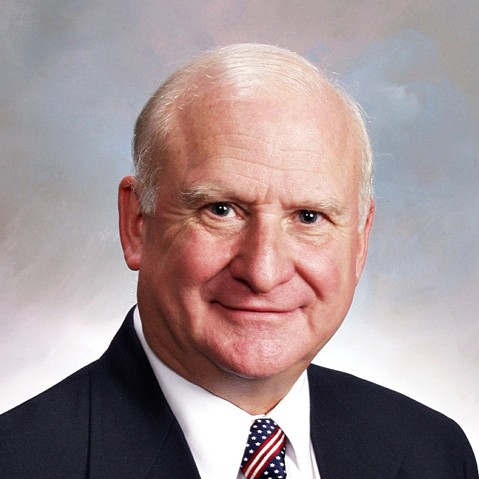In 2013, Elizabeth Evans became the first general counsel, vice president, and secretary at Republic Steel. Previously, the company had relied exclusively on outside counsel, which is how it found Evans in the first place. After working with the company for a year, Evans was invited to a seat at the executive table, and she began improving her department almost immediately.
“When I went in-house, it took some time for employees to understand what a person might use an in-house lawyer for,” Evans says. “I’d receive some information that was legal related, and some that wasn’t. We spent time working with staff on when it was appropriate to involve the legal department or not.” Evans also took the initiative to learn everyone’s role and the larger company structure. “I wanted to know what each person did, how they worked, how they worked with other members of their own department, and how they worked with other departments,” she says.
Because of her executive role, Evans had the opportunity to interact intimately with all areas of the business, which helped her hone in on ways to reduce spending and legal risk. “People in other departments might not see what legal issues are occurring,” she says. “It’s my responsibility to point that out, and then walk them through what the outcomes for potential risk might be.”
Almost immediately after Evans went in-house at Republic Steel, she was able to implement three significant overhauls to the company. First, she streamlined the use of outside counsel. Previously, each department had been looking for outside counsel on its own, on a case-by-case basis. At that time, there was little oversight when it came to legal spending at the company—there was no monitoring that usage or analyzing invoices—and many staff did not realize what outside counsel should bill for, or what should be complementary. Now, everyone looking for counsel comes to Evans personally. If one of the members of the legal department can handle the issue, she assigns it in-house. If it is necessary to seek outside counsel, Evans is the one who looks for firms to handle each issue.
Instead of defaulting to the largest firms, who often charge the highest fees even for relatively small issues, Evans is able to better align company priorities with the capabilities of outside counsel. Because of her expertise, Evans can focus on matching the issue with the outside firm’s background—“We don’t need a one-stop shop; we need the most efficient, most effective counsel,” she says. And then, in negotiation, she cuts down on the fees that many firms charge. Because of these changes, Evans cut legal spending by 50 percent in her first year at Republic Steel.
Evans’s second big accomplishment out of the gate was a contract database. “We needed to track terms, conditions, vendors, schedules—everything,” she says. Republic Steel had previously had no formalized way of tracking contracts, so the database was especially helpful with scheduling and managing contract renewals. “Because of the nature of our work—we have thousands of contracts with hundreds of vendors—monitoring this volume manually is just not practical, so we needed an electronic database to do the work for us. I set it up to track expiration and renewal dates, and to notify staff and ask how they wanted to respond. This simple step eliminated our risk of staying in contracts longer than we wanted to.”
A third overhaul was another database—the company needed an electronic database to handle the legal department’s files. Previous to Evans’s arrival at Republic Steel, files were not kept electronically. “When files were being sent to Republic previously, they were hard copies—literally boxes and boxes of files,” Evans says. “We created an electronic legal database for document retention, which provides history and easy access to all legal documents. Now we are able to monitor legal correspondence, litigation matters, and contracts easily. We now have the ability to access all our pertinent documents very quickly.”
One of Evans’s goals for her first year in-house at the company was to minimize the risk Republic Steel was exposed to and to dramatically reduce legal spending, but she acknowledged that it couldn’t have happened overnight. “You can only take it step by step,” she says. “You can’t do everything at once.”
After those initial changes, Evans’s role in the company expanded. She quickly took on labor relations, human resources, and environmental health and safety—realizing along the way that she couldn’t do it alone. “I knew I needed someone experienced in corporate law, and I slowly built the team,” she says. “I now have an assistant general counsel, as well as two other attorneys on our team.”
All of these developments and improvements took place during the highly publicized OSHA investigation of Republic Steel that began in September 2013. Evans managed the whole process following OSHA’s company-wide inspection. She selected a customized team for the job: one in-house attorney and two outside attorneys, plus Evans. Strategy was determined on a day-to-day basis. At different times, Evans was negotiating with federal, regional, and local OSHA agents, and often, all at once. She was able to negotiate directly with OSHA on larger items, but her team was responsible for handling smaller matters independently. Republic Steel and OSHA came to a final settlement in May 2014, in which Republic committed to a number of items (such as a health and safety program with the United Steel Workers), which will make the company one of the safest steel companies going forward.
After settling on a successful outcome between Republic Steel and OSHA, cutting legal spending by half, and shoring up the legal department, Evans is ready to take her role at Republic Steel yet another step forward. This means honing in on certain legal issues and monitoring patterns and trends in the existing system to further reduce spending, and to prevent risk situations from developing in the first place. “I’ve set the basics and cleaned everything up,” she says. “We have great policies, processes, and procedures. Now it’s at a point where I’m taking it to another level.”

